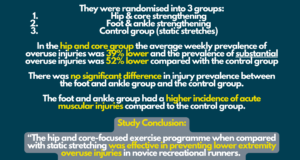Study uncovers how genetic links between depression and heart disease disproportionately impact women, emphasizing the urgent need for tailored interventions and further exploration of sex-specific mechanisms.
 Study: Sex-Specific Association Between Genetic Risk of Psychiatric Disorders and Cardiovascular Diseases. Image Credit: Inkoly / Shutterstock.com
Study: Sex-Specific Association Between Genetic Risk of Psychiatric Disorders and Cardiovascular Diseases. Image Credit: Inkoly / Shutterstock.com
Cardiovascular disease (CVD) is more common among people with psychiatric illness; however, there is conflicting evidence on whether this increased risk varies based on sex. A recent study published in Circulation: Genomic and Precision Medicine examines this association based on three major psychiatric disorders and CVDs.
The role of gender in CVD risk with mental illness
Existing evidence indicates up to a 50% increased risk of future CVD among those with mental illness, which has been attributed to both genetic and non-genetic factors. Non-genetic factors like psychotropic medications, smoking, and isolation from social activity increase the risk of CVD in this patient population.
Both mental illness and CVD have significantly different prevalence rates among males as compared to females. More specifically, major depression affects 26% of females as compared to 15% of males, with women more likely to experience more severe depression. Conversely, men are more likely to develop CVD at some point, with 60% of men affected by CVDs as compared to 55.6% of women by 45 years of age.
Previous observational studies examining the association between CVD and mental illness have produced conflicting findings. The confounding effects of psychiatric medication on cardiometabolic risk cannot be ruled out, thus making it difficult to assess the independent risk of CVD. Menopause is also associated with metabolic dysfunction that must be considered when estimating the effect of mental illness on CVD risk in women.
Several large genome-wide association studies (GWASs) have been performed to estimate the genetic risk of both mental illness and CVDs. These studies investigate the overlap between genetic and biological factors between different illnesses to provide insights into the potential causal relationship between these diseases.
Mendelian randomization (MR) analyses have demonstrated that depression contributes to the risk of heart failure (HF) and coronary artery disease (CAD). However, the role of genetic factors in concurrent CVD and mental disorder risk in either sex remains unclear.
About the study
The present epidemiological study used polygenic scores (PGSs) to estimate the genetic risk for major depression (MD), schizophrenia, and bipolar disorder. Thereafter, the association of these scores with the risk of developing atrial fibrillation (AF), CAD, and HF was determined.
The primary cohort comprised 345,169 United Kingdom Biobank participants of European ancestry. Identical analyses were performed on this and another BioVU cohort of 49,057 individuals.
MD associated with CVD risk in females
In the U.K. Biobank cohort, the risk of all three new-onset CVDs was correlated with one standard deviation (SD) increase in genetic risk for MD (PGS-MD). Women at a higher genetic risk for MD were also more likely to develop CVDs by 4%, 7%, and 9% for AF, CAD, and HF, respectively.
This increased risk was not attributed to the genetic risk for the three CVDs, and it was not observed in males.
The MR analysis suggests that the association between an MD diagnosis and CVD risk in females or higher CAD risk in males is not causal.
CVD-MD association without MD diagnosis or treatment
CVD risk was associated with an increased genetic risk for depression among females without a diagnosis of MD and no history of medication use for depression. The risk for AF, CAD, and HF was increased by 3%, 5%, and 7%, respectively, in this subgroup, thus suggesting that the increased CVD risk may not be directly related to medication- or behavior-related effects due to MD.
Modifiable factors mediate part of the risk
The association of genetic risk for MD with CVDs in females was partly caused by increased baseline body mass index (BMI), higher blood cholesterol levels, higher blood pressure, and current smoking status. However, these factors mediate a larger share of the risk in males, thus indicating a sex-specific genetic risk contribution among females.
Menopause, MD, and CVD risk
The genetic risk for MD correlates with CAD risk in females, irrespective of their baseline menopausal status. The risk was 22% and 7% higher among pre- and postmenopausal women, respectively. In both groups, the CAD risk exceeded that in males.
For AF and HF, only postmenopausal women were associated with an increased incident risk by 3% and 10%, respectively, with a higher genetic risk observed for those with MD. Notably, the current study did not control for the use of hormone replacement therapy.
This trend was not observed among premenopausal women, possibly due to the inadequately powered sample. The genetic risk for schizophrenia or bipolar disorder was not associated with incident CVDs.
These findings were partly replicated in the BioVU cohort. However, the sex-specific differences in risk were insignificant, possibly due to the smaller cohort size.
Conclusions
The study findings indicate that women with a genetic risk of MD are more likely to develop AF and HF than males with a corresponding risk while also confirming previous reports of an increased CAD risk among females in association with genetic MD risk. This association persists in the absence of a diagnosis of depression.
Our findings highlight the importance of further investigation into the mechanisms that mediate the association between the genetic risk of MD and CVD risks, particularly mechanisms underlying the sex difference.”
Journal reference:
- Jiang, J., Singh, K., Nitin, R., et al. (2024). Sex-Specific Association Between Genetic Risk of Psychiatric Disorders and Cardiovascular Diseases. Circulation: Genomic and Precision Medicine. doi:10.1161/CIRCGEN.124.004685.




